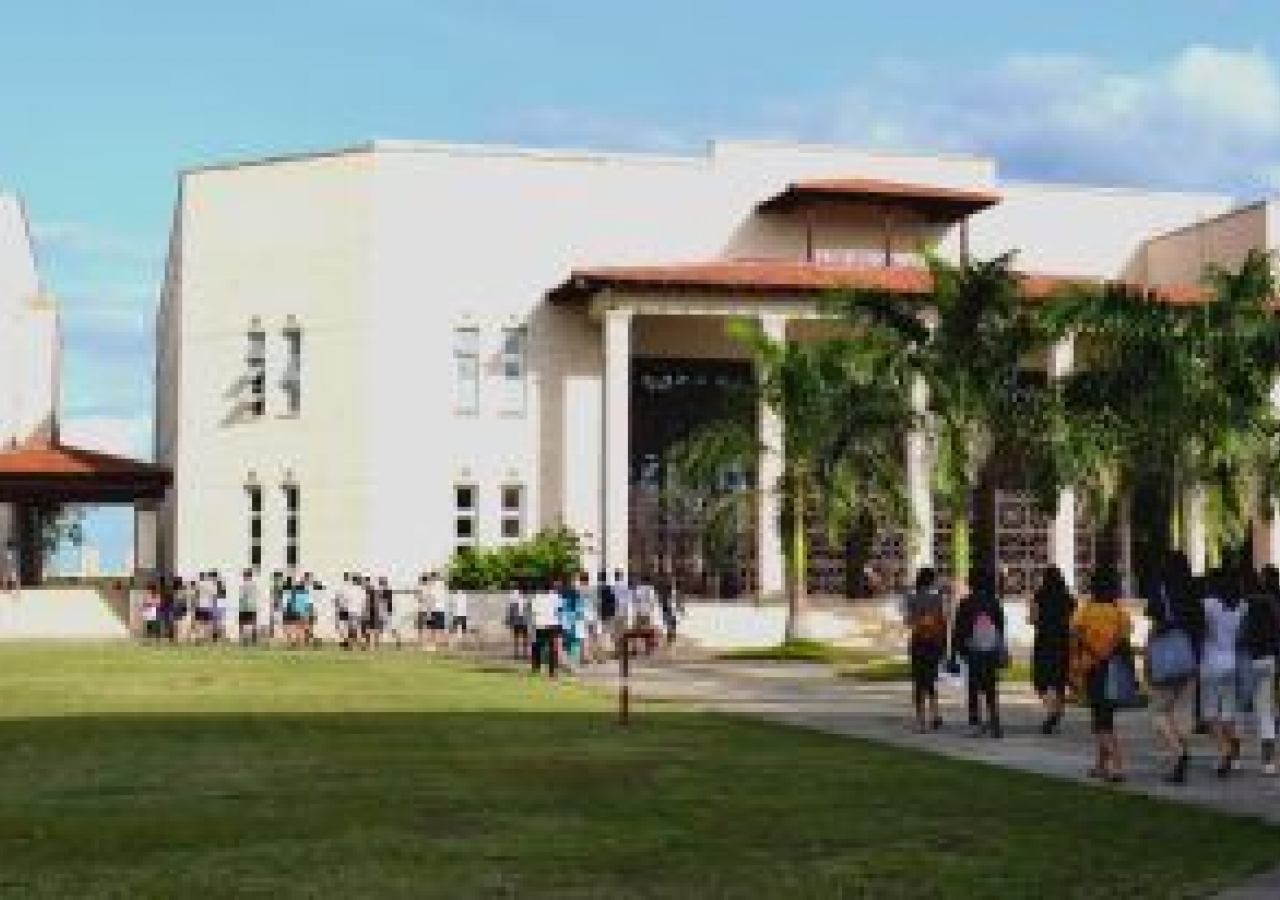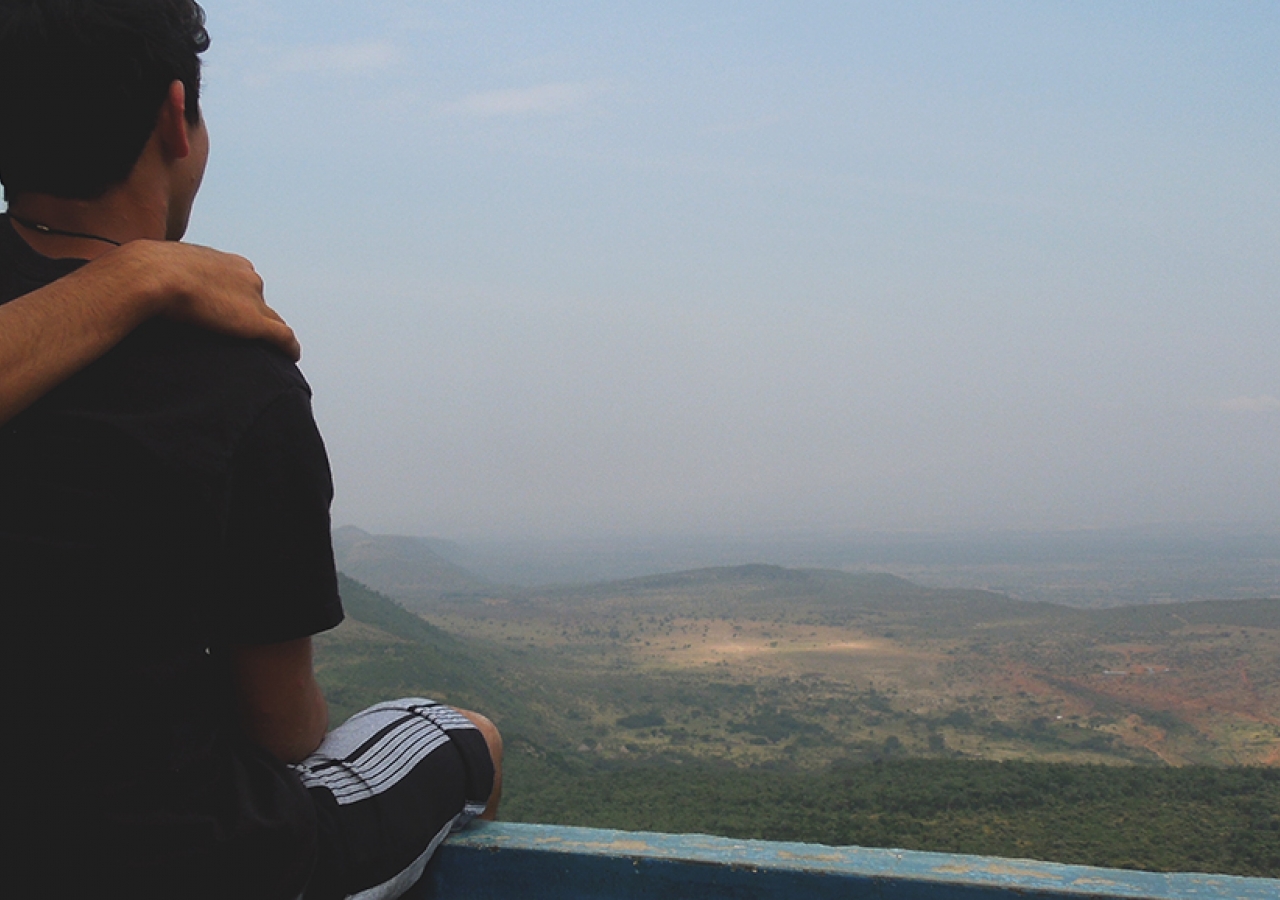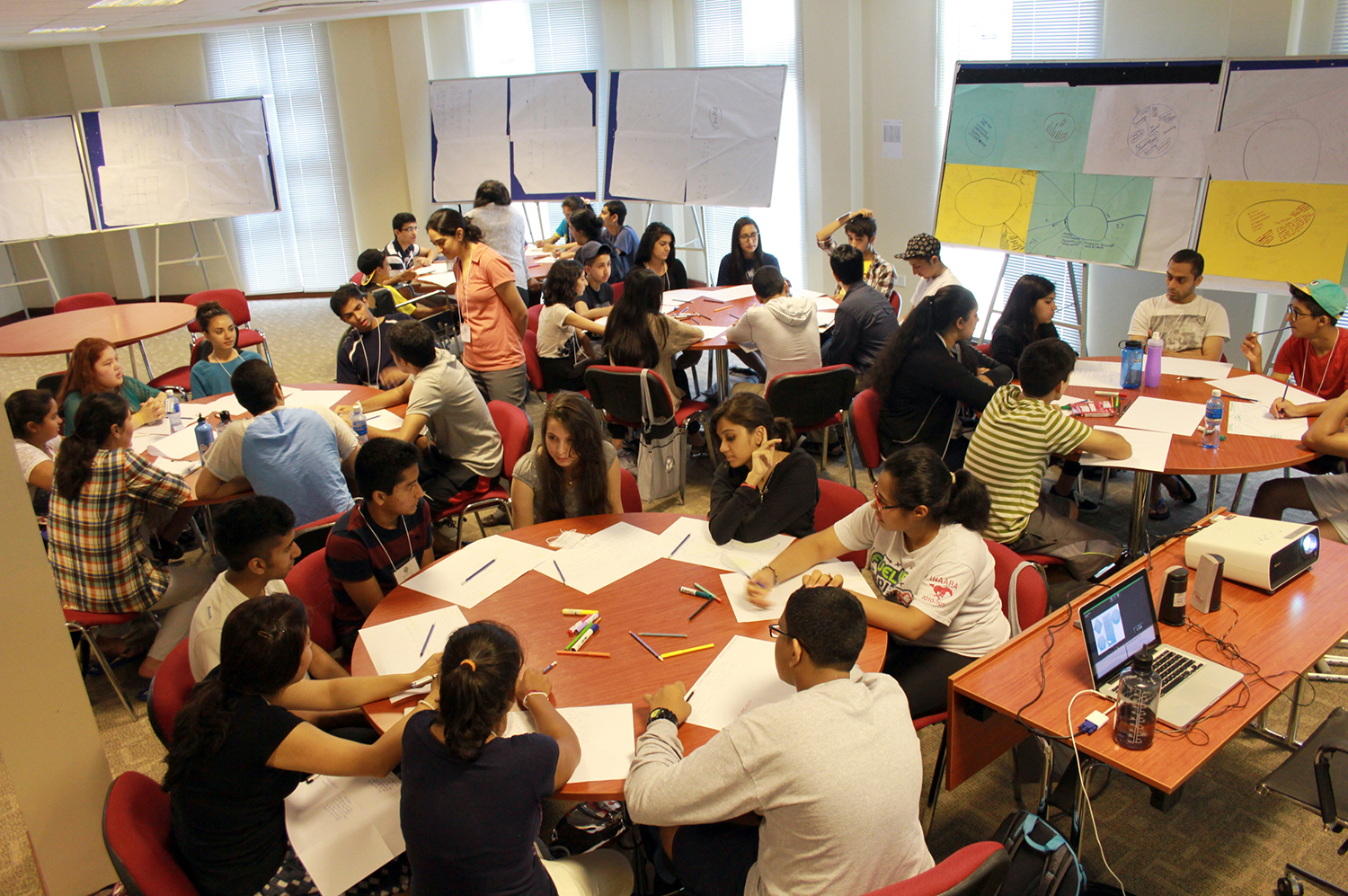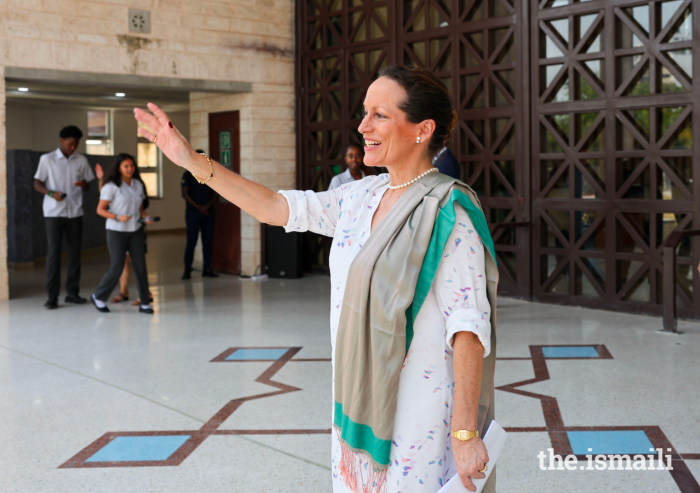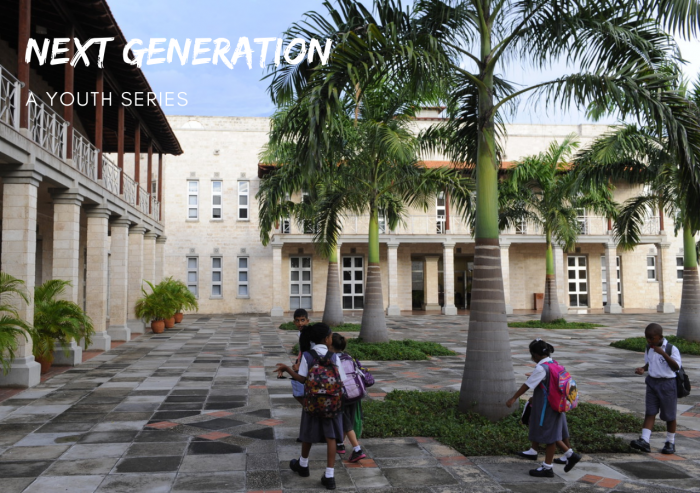In July 2013, 64 students with roots in 13 countries gathered at the Aga Khan Academy, Mombasa to participate in Global Encounters, the first summer programme of its kind for Ismaili youth from around the world. Students from Afghanistan, Angola, Canada, the Democratic Republic of Congo, Iran, Madagascar, Syria, Tajikistan, Tanzania, the United Arab Emirates, Uganda, and the United States of America, joined with participants from the host country Kenya – eager to learn, serve and grow.
Over the course of the next month, they would have a window on a world outside of their own. With the Mombasa campus as their base of activity, the students also visited Nairobi – a hub for the Aga Khan Development Network's work in East Africa and a city of historical significance for the Jamat.
Students engaged with pressing issues in global development, and gained a first-hand view of AKDN's community-driven and research-supported approaches in a range of sectors. They took part in service work at schools and in communities, took rigorous classes in leadership and ethics, visited AKDN projects, and connected with one another through the arts, sports and excursions. They even had a chance to experience a safari at Kenya's world-renowned Masai Mara Park.
 Meeting people of different cultures and traditions reshaped the way participants view the world around them. Shaherose Jamal
Meeting people of different cultures and traditions reshaped the way participants view the world around them. Shaherose Jamal“I learnt to approach each new encounter – whether it be with people, cultures, or ideas – with an open mind and no pre-conceived notions, because everyone has a story,” says one participant.
All of the students volunteered at Aga Khan Foundation-supported government schools in Mombasa, where regular Academy students also serve year-round. They supported early literacy and classroom learning, taught classes in the use of technology, started enrichment programmes, and led deworming clinics. The students also assisted local communities with infrastructure projects such as the installation of a water tower or the establishment of a library, and supported children with disabilities.
Collaboration on a global scale
Global Encounters is an initiative of the Jamati Institutions of the Ismaili Muslim community in collaboration with AKDN institutions like the Aga Khan Academies – a key partner in the programme. It was founded to create opportunities for young Ismaili students from across the globe to meet and get to know one another. The summer programme focuses on service learning, leadership development, and teaches global citizenship and pluralism. Fostering an ethical outlook and sense of civic responsibility, developing an understanding of global issues and encouraging creativity are important underpinnings.
 Teaching games to kids at Port Reitz, a school for handicapped and socially disadvantaged students in Mombasa. Shaherose Jamal
Teaching games to kids at Port Reitz, a school for handicapped and socially disadvantaged students in Mombasa. Shaherose Jamal“We are shaped by the people we meet, cultures we interact with, concepts we ponder, and the feelings we experience when challenged beyond our comfort zone,” says Sana Ajani, a student from the United States. Students were able to link their work in Mombasa communities with issues faced in their own hometowns. Working hand-in-hand with local Kenyans also provided an opportunity to build bridges across cultures, learn about the richness of shared diversity, and discover that which is common.
In Nairobi, the students toured the operation of Frigoken, Kenya's largest distributor of green beans – also a project company of the Aga Khan Fund for Economic Development. They met with senior leaders from the Aga Khan University Hospital in Nairobi, visited the Madrasa Resource Centre, one of the Aga Khan Foundation's flagship programmes in East Africa, and had an interactive session with an architect involved in a major urban park rehabilitation project.
Witnessing AKDN's approach to community-driven development, gaining first-hand knowledge of good development practice, and linking the work of the Network and its deep connection to faith and values fostered “a deeper understanding of our practices as a global Jamat and our rich history as Ismailis,” remarks a participant.
 Elderly Ismaili residents at Makupa Flats welcome participants from Global Encounters into their home. Rahim Sajan
Elderly Ismaili residents at Makupa Flats welcome participants from Global Encounters into their home. Rahim SajanOne of the distinctive aspects of the programme was that the students got to spend time with the Kenyan Jamat and the wider society through sports and social activities. Elders of the Jamat shared personal memories of having established roots in East Africa decades ago, stories that were deeply intertwined with aspects of Ismaili faith and values.
These collective experiences motivated students to develop leadership and cultural competencies, as well as fully immerse themselves in Kenyan culture, language and the arts. One participant explains how her perspective had changed: “Coming to a country and seeing the incredible potential it has and the hope that surrounds each and every smile and each and every welcoming wave will change the way I live.”
“A sense of family was established with a Jamat from around the world,” says another, reflecting a commonly expressed feeling that for many, Kenya had become a new home away from home.
Broadening horizons
The Global Encounters programme equips participants to contend with real-world challenges, broaden their worldview, build friendships, and nurture self-discovery. Ajani and her peers now view themselves as not simply a “part” of the global Jamat but as “active contributors” in its advancement and in advancing the communities amongst which Ismailis live and work.
“It definitely opened our eyes, minds, and hearts to life outside the familiar spheres we've grown up in,” reflects Ajani. “Global Encounters gave us the little push that we needed to get off our seats and experience the boundless opportunities there are to travel, serve, learn, help, and come together.”
Another participant remarks how “the ideas of cultural sensitivity and inclusiveness” contributed to a realisation that “in different areas peoples' notion of a good quality of life may be completely different – it is important to make sure that a Western outlook is not imposed upon other societies.”
“Words that we once tossed around without consideration, such as ‘empathy', ‘humility' and ‘global citizenship' now hold greater meaning for us,” says Ajani, “because we were able to experience and learn about them first-hand.”

